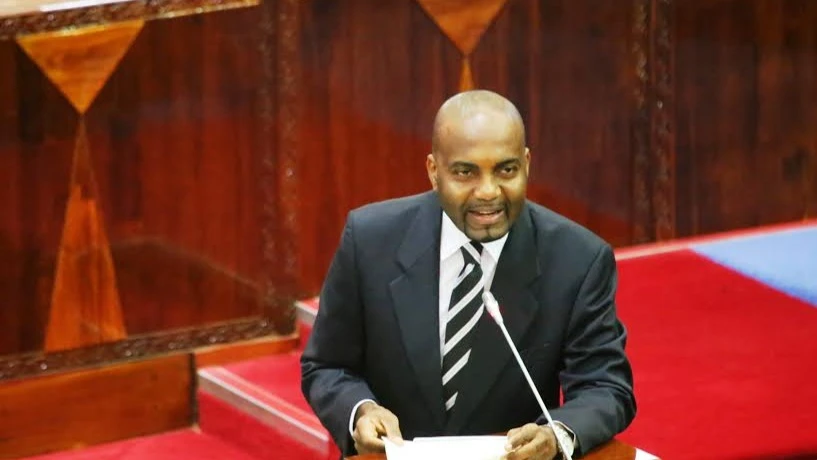UNDERSTANDING CREDIT, DEBT: A crucial guide to personal finance in Tanzania

In the dynamic financial landscape of Tanzania, mastering the concepts of credit and debt has become imperative for those striving for economic stability and personal growth. As access to various forms of credit expands across the nation, understanding the diverse opportunities and associated risks is essential for making informed financial decisions that could significantly impact one’s future. The array of credit options available in Tanzania caters to different needs and comes with distinctive features that borrowers should be aware of.
Personal loans are a popular choice among Tanzanians seeking financial flexibility. Typically unsecured, these loans do not require collateral, making them accessible for individuals in need of quick financing. Borrowers can utilize personal loans for a range of purposes, whether to consolidate existing debt, make significant purchases, or navigate unexpected expenses. With fixed interest rates and predetermined repayment terms, these loans enable easier budgeting and offer a predictable pathway to meeting financial obligations.
Another accessible form of credit is the credit card, which provides a revolving line of credit. This allows users to borrow money up to a specific limit for various purchases or cash advances. While credit cards offer significant flexibility, it is crucial to manage them wisely; missing payments can result in hefty interest charges and adversely affect one’s credit score.
Features such as cash back offers and rewards programs have made credit cards appealing in Tanzania, prominently available through many major banks. However, responsible usage is essential to avoid getting trapped in a cycle of excessive debt.
Mortgages represent a long-term investment option for Tanzanians looking to buy a home. The mortgage landscape is evolving, thanks to banks and financial institutions broadening their housing loan portfolios. It is vital for prospective homeowners to comprehend terms related to mortgages, such as fixed versus variable interest rates, as well as potential additional costs like property taxes. Understanding these elements can make a significant difference in managing long-term financial commitments effectively.
For those pursuing higher education, student loans provided by the Higher Education Students’ Loans Board (HESLB) are an invaluable resource. These loans typically feature favourable terms; however, beneficiaries must adhere to a robust repayment plan to avoid penalties and ensure compliance with the program’s stipulations. Proper management of student loans can open doors to further education without jeopardizing financial well-being.
Integral to navigating the credit landscape is the concept of a credit score, which serves as a crucial indicator of an individual’s creditworthiness.
This score significantly influences the likelihood of loan approval and the interest rates offered by lenders. Several factors contribute to credit scores, including timely payments, maintaining low credit card balances relative to the overall credit limit, and a longer history of responsible credit use. By prioritizing these factors, individuals can enhance their financial standing and improve access to better credit opportunities.
One of the most effective ways to manage debt is by maintaining a detailed budget. By assessing income against expenses, individuals can allocate funds wisely, ensuring that debt payments are prioritized while essential living costs are covered. Budgeting apps like JazaPay can simplify this process, allowing users to track spending and savings effortlessly. Alternatively, manual budgeting systems can work just as well, with consistency and awareness being a key to financial success.
A proactive method to avoid incurring additional debt is to establish an emergency fund. This safety net can protect individuals from relying on credit during unexpected expenses, such as medical emergencies or urgent home repairs. Saving at least three to six months' worth of living expenses can alleviate financial stress and support better decision-making during unplanned situations.
Additionally, for those grappling with multiple debts, the snowball method—focusing on paying off the smallest debts first while making minimum payments on larger debts—can prove to be effective. This approach reduces the number of outstanding debts and builds momentum and confidence in managing finances.
Falling into the debt trap is easier than many realize, often stemming from a single impulsive decision. To navigate around this pitfall, it is essential to adopt mindful spending habits. Being discerning about purchases and learning to differentiate between needs and wants can significantly reduce unnecessary spending. Limiting impulse purchases decreases the likelihood of relying on credit to fund luxuries, thereby maintaining financial health.
Before committing to any loan, taking the time to thoroughly review the terms is vital. Familiarizing oneself with interest rates, repayment periods, and associated fees, as well as understanding potential penalties for late payments, can prevent unexpected financial burdens.
If managing debt becomes overwhelming, reaching out for professional help can be a lifesaver. Financial advisors approved by the Bank of Tanzania (BOT) offer valuable guidance and resources to help devise effective debt management plans.
Gaining a comprehensive understanding of credit and debt is essential for personal financial success in Tanzania. By staying informed, utilizing available resources, and embracing responsible financial practices, individuals can pave the way toward a secure financial future.
Reviewing credit reports, setting realistic budgets, and committing to disciplined spending habits are foundational steps. With the right approach, financial stability and growth can be well within reach, empowering Tanzanians to thrive in an ever-evolving marketplace.
Brighton Kinemo is the Head of Training and Data Sales at DSE,He can be reached through [email protected]
Top Headlines
© 2025 IPPMEDIA.COM. ALL RIGHTS RESERVED

























